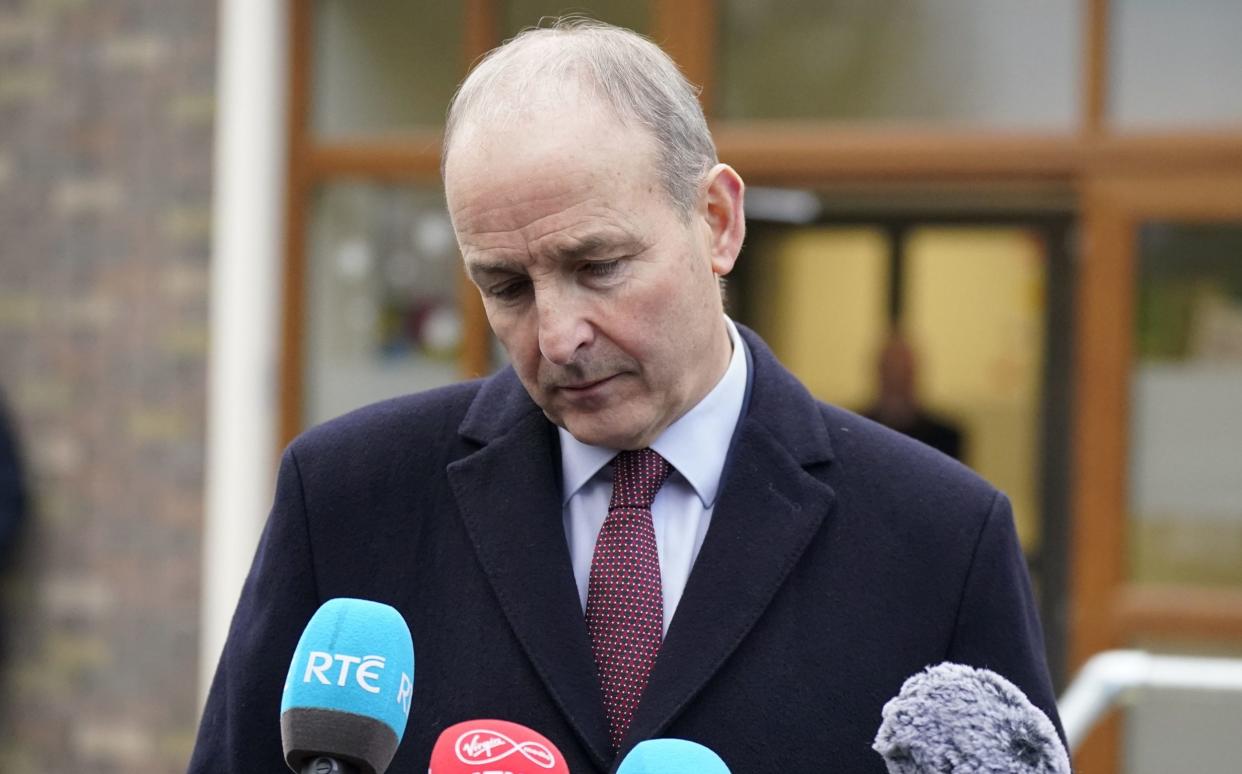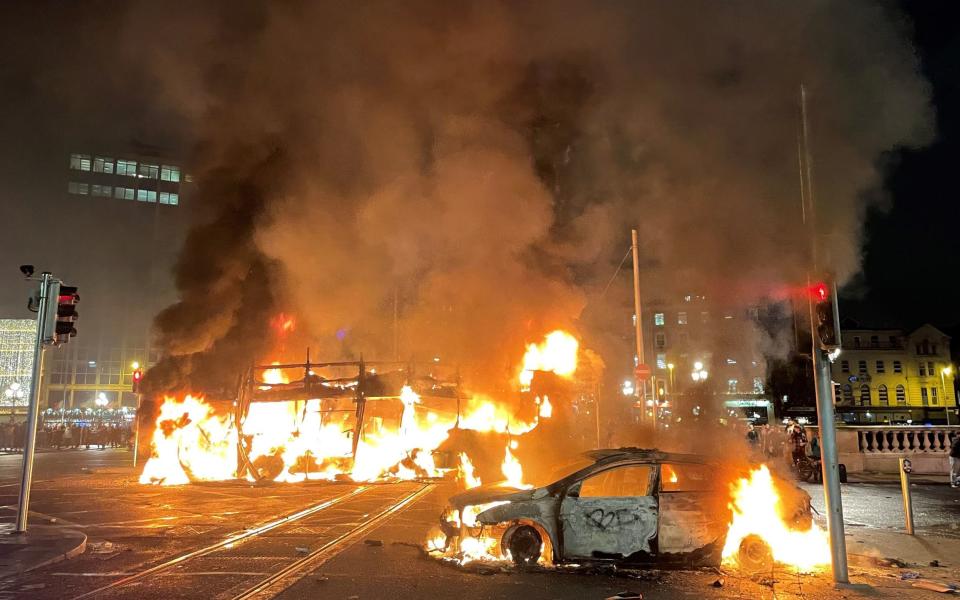Male asylum seekers in Ireland forced to sleep in tents this winter

Male asylum seekers will be forced to sleep in tents on Ireland’s streets this winter after the government said it had run out of room for refugees.
The EU member state, home to five million people and in the midst of a major housing crisis, is currently hosting 100,000 refugees, including some 75,000 Ukrainians.
“Despite intensive efforts to source emergency accommodation, the [government] is currently not in a position to provide accommodation to all [asylum seekers] due to the severe shortage,” the Department of Integration said on Monday.
Women and children will still be housed.
The department said it would provide tents and sleeping bags to men when necessary and hot showers, meals and laundry facilities seven days a week via drop-in day services.
It added it was working to find more bed spaces for the men after bringing more than 10,000 into use to accommodate asylum seekers arriving in Ireland since January 2022.
But activists warned refugees forced to sleep rough were at risk of being “burned alive” by violent far-Right groups who were responsible for anti-immigrant riots in Dublin last month.
The United Nations branded the move “extremely concerning”.

Anti-immigrant sentiment has soared in Ireland in recent months and came to a head during last month’s riots, triggered by the stabbing of three children and a creche worker outside a Dublin school.
Far-Right agitators had used social media to urge their supporters to take to the streets over the stabbing, which came after makeshift camps were burnt and a string of attacks on asylum centres.
Deputy prime minister Micheál Martin said the government was “very concerned” about the dangers of sleeping in tents on the streets and would discuss the issue later this week.
Enda O’Neill, the head of office at the United Nations High Commissioner for Refugees said the news was “extremely concerning”.
“The situation has only deteriorated since early this year in terms of some of the intimidation and threatening behaviour that we have seen on our streets,” he told RTE, Ireland’s public service broadcaster.
Lucky Khambule, of the Movement of Asylum Seekers in Ireland, told RTE: “I can’t even say more about the riots, that indicates how far people can go to destroy other people.
“What chances do people have who are in the streets?” he added. “We can end up with a situation of people burned alive in their tents.”
“We believe that international protection applicants would be targeted if they had to sleep rough,” said Nick Henderson, chief executive of the Irish Refugee Council.
Today the Irish government confirmed that Ireland can no longer provide accommodation to all those seeking asylum here.
Our Head of Office, @endaoneill, spoke to RTE following the announcement.
Listen back: https://t.co/Z8zoACXuVG pic.twitter.com/NIVsnKcKws— UNHCR Ireland (@UNHCRIreland) December 4, 2023
Asylum applications in Ireland rose 415 per cent last year to a record-high total of 13,651, according to the European Migration Network.
In the 10 months leading up to the end of October this year, 10,386 people applied for international protection, down seven per cent on the same period in 2022.
More than 100 asylum seekers were housed over the weekend.
Irish prime minister Leo Varadkar warned Ireland had reached its refugee limit in October, which he blamed on its “better offering” than neighbouring countries such as Britain.
Ireland was suffering from a “very serious housing shortage that we don’t want to make worse”, he said.

